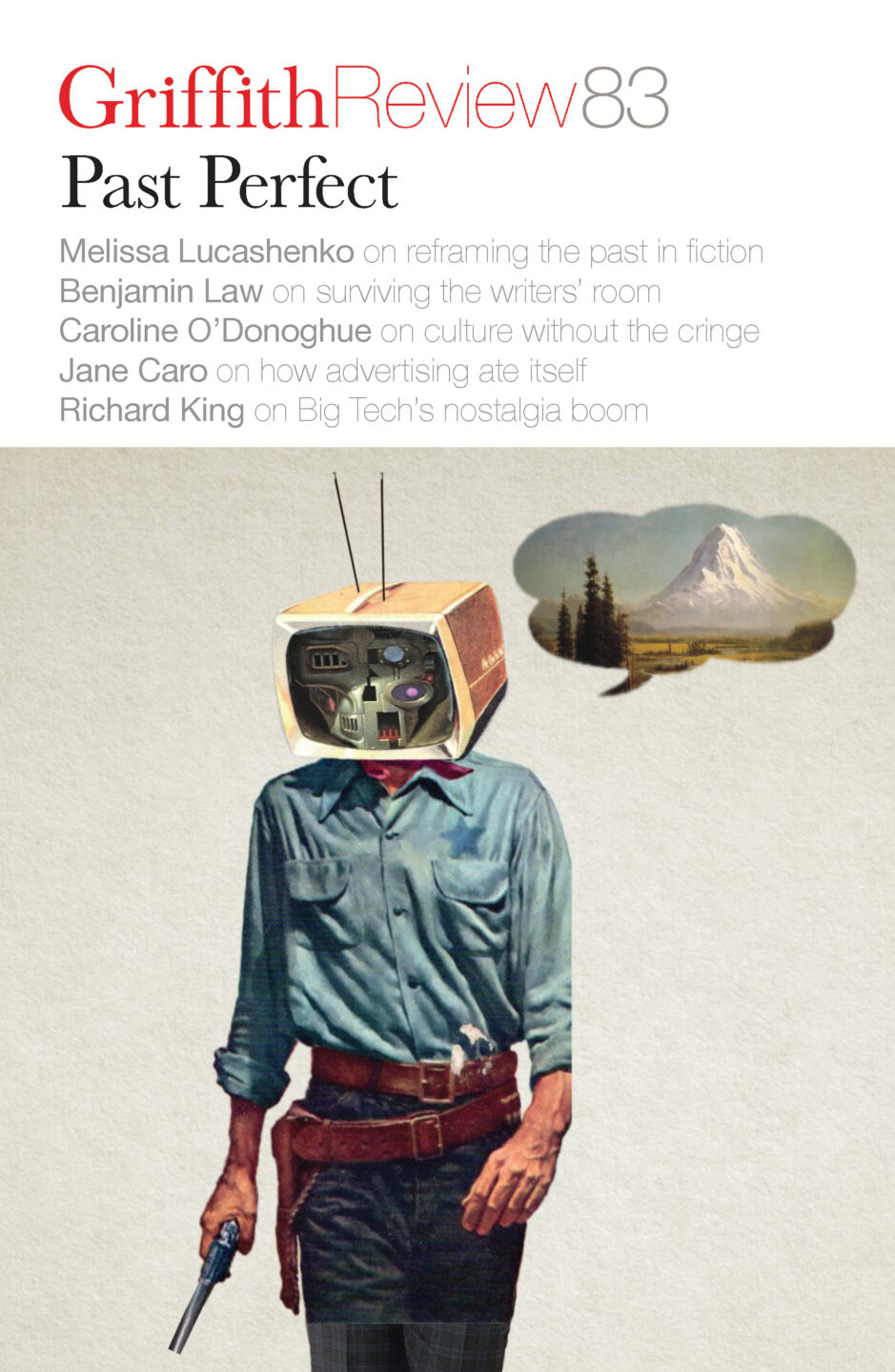Featured in

- Published 20240206
- ISBN: 978-1-922212-92-4
- Extent: 204pp
- Paperback, ePub, PDF, Kindle compatible


Already a subscriber? Sign in here
If you are an educator or student wishing to access content for study purposes please contact us at griffithreview@griffith.edu.au
Share article
More from author

Indelible ink
FictionSelected for Best Australian Stories 2006SHE WAS FIFTY-NINE, rich, divorced for a year, and out alone on a Saturday night. She told the taxi...
More from this edition

From anchor to weapon
Non-fictionIn 1930s Germany, the slogan ‘blood and soil’ was most prominently promulgated by the Reich Ministry of Food and Agriculture, which positioned itself not merely as an administrator but a kind of advocate-guardian of the soil and its workers. In 1930, Adolf Hitler recruited Richard Walther Darré, then a leading blood and soil theorist, to the Nazi Party. On seizing power in 1933, Hitler appointed Darré Reichsminister of Agriculture, a role he occupied until 1942. Recently, for reasons that are unclear but politically alarming, Darré’s works on blood and soil have been translated and republished in English to some fanfare.

Scarlett fever
Non-fictionThe competition was notable for its shift away from being a Vivien Leigh lookalike contest. The bid to find a woman who, instead, ‘most closely’ resembled how Scarlett ‘would act and speak today’ and embodied ‘her spirit and sass’ opened up the search to any woman with a bit of chutzpah, including, in theory, Black and other women of colour.

Time plays tricks
IntroductionTen years ago, the late, great cultural theorist Mark Fisher posited that our ‘montaging of earlier eras’ had reached such fever pitch that we no longer even noticed our submersion in a sea of bygones. And sitting alongside this purported cultural inertia are our increasingly divergent attitudes towards history – the far-right impulse to romanticise the past, the far-left desire to remedy its wrongs – and how they inflect our politics.